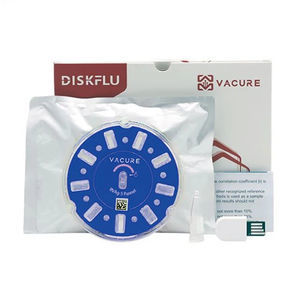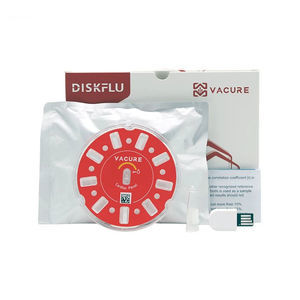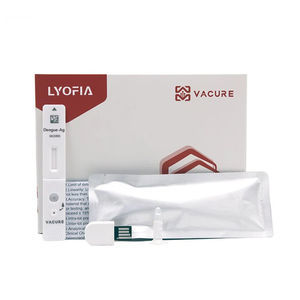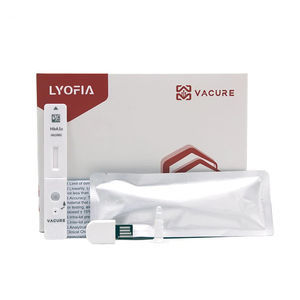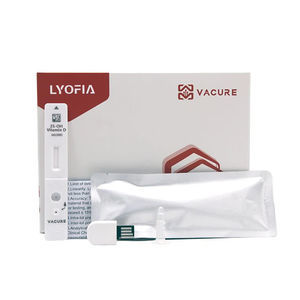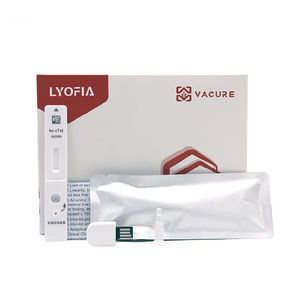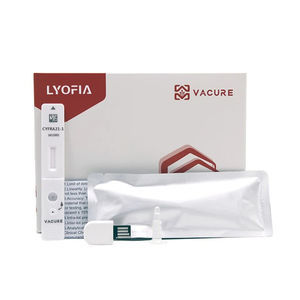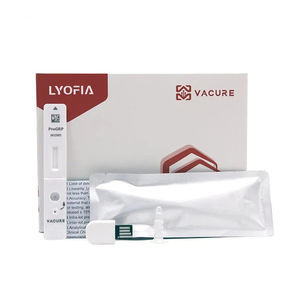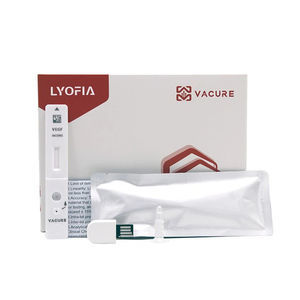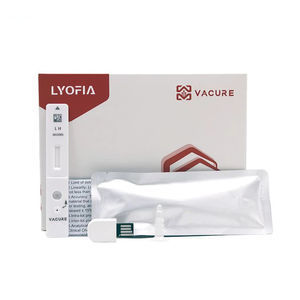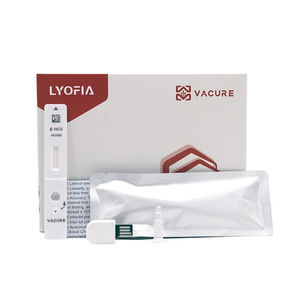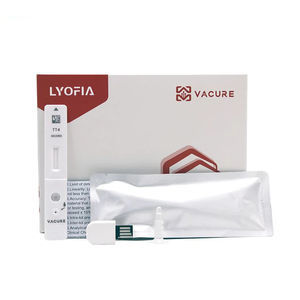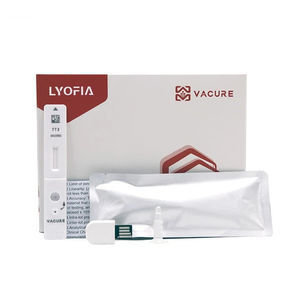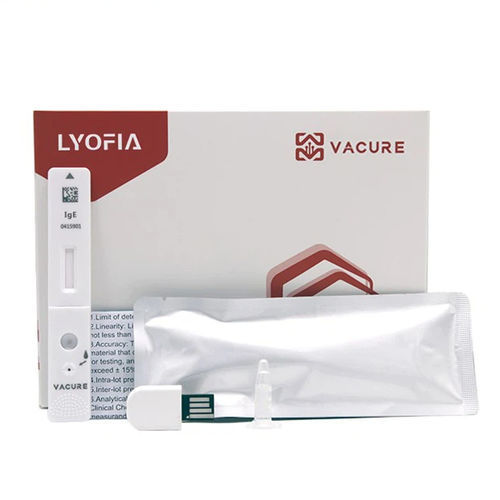
- Laboratory
- Laboratory medicine
- Pneumonia test kit
- Chengdu Vacure Biotechnology Co., Ltd

- Products
- Catalogs
- News & Trends
- Exhibitions
Pneumonia test kit LYOFIA®allergyimmunoglobulinIgE
Add to favorites
Compare this product
fo_shop_gate_exact_title
Characteristics
- Applications
- pneumonia, allergy
- Tested parameter
- immunoglobulin, IgE, total IgE
- Sample type
- clinical, blood, serum, plasma, whole blood
- Analysis mode
- immunoassay
- Format
- cassette
- Result display time
10 min
Description
This IgE (allergy) test Kit is developed to be used for the quantitative detection of total IgE in human whole blood, serum or plasma. It is for in vitro diagnostic use only, not for self-testing of untrained individuals, nor for near-patient testing.
Summary
Immunoglobulin E(IgE) is a secretory immunoglobulin produced by plasma cells in the lamina propria of the nasopharynx, tonsil, bronchi, and gastrointestinal mucosa. It is the main antibody that causes type I allergic reactions. It is unstable to heat and has a low serum level in normal people. IgE in serum of patients with allergic constitution or hypersensitivity is significantly higher than that of normal people, and it is several times higher than normal in patients with exogenous asthma.
Why Test IgE?
Take a drop of blood for IgE test in the body can understand the state of the body's humoral immune function and help diagnose various diseases such as immune hyperplasia, immune deficiency, infection and autoimmunity. IgE also plays a pivotal role in responses to allergens and type I hypersensitivity, which has important clinical significance.
IgE serum(allergy) testing elevate serum total IgE amount: if the level of IgE raised, that means there are maybe hypersensitivity diseases such as allergic rhinitis, exogenous asthma, hay fever, chronic urticaria, parasitic infection, acute and chronic hepatitis, drug-induced interstitial pneumonia, bronchopulmonary aspergillosis, eczema, rheumatoid arthritis, and IgE multiple myeloma, etc.
Decreased serum IgE is often seen in primary agammaglobulinemia, after the application of tumor and chemotherapy drugs, ataxia-telangiectasia, etc.
Other Chengdu Vacure Biotechnology Co., Ltd products
POCT Test Reagents
Related Searches
- Assay kit
- Solution reagent kit
- Blood assay kit
- Molecular biology reagent kit
- Serum assay kit
- Immunoassay assay kit
- Plasma assay kit
- Infectious disease detection kit
- Blood rapid diagnostic test
- Diagnostic reagent kit
- Protein reagent kit
- Cassette rapid diagnostic test
- Molecular test kit
- Serum rapid diagnostic test
- Whole blood detection kit
- Respiratory infection test kit
- Plasma rapid diagnostic test
- Optical assay kit
- Clinical assay kit
- Cassette assay kit
*Prices are pre-tax. They exclude delivery charges and customs duties and do not include additional charges for installation or activation options. Prices are indicative only and may vary by country, with changes to the cost of raw materials and exchange rates.

